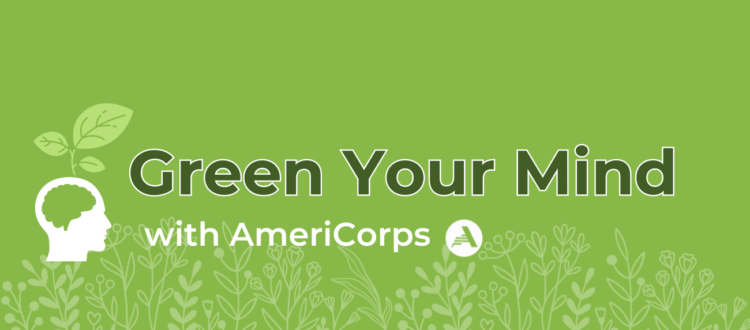Stop, Drop and Roll: Wildfire Risk and You

Image Credit: John Newman/U.S. Forest Service
Written by Whitney Barkley, Community Stewardship Facilitator with AmeriCorps’ Climate Impact Corps program
Wildfire season is already upon us. With spring-like weather coming weeks ahead of schedule and melting all of the little snow we received, now is a good time to get prepared for the upcoming wildfire season and assess your risks and how you can keep your community safe. The Minnesota DNR notes 90% of wildfires in Minnesota are caused by people1 and the USDA determined that number sits at 87% for the nation as a whole.2 More locally, of the 6 wildfires that occurred in Ramsey county between 2015-2020, 100% of them were caused by people and half of them occurred in the month of April.3 And while wildfires can cause devastating damage and loss, statistically St. Paul is in an area of relatively low risk, lower than 64% of the counties in the greater United States.4 St. Paul city code and policy around recreational fires reflects this low risk and residents can generally enjoy recreational fires without too much paperwork if they follow some simple guidelines. Like most of the state, St. Paul is under restrictions for open burning or debris burns.5 Dormant and dead vegetation and spring winds can make this time of year a surprisingly risky time for wildfires, so it’s crucial to check if you need a permit if you plan to do an open burn. Those managing fires and areas at risk of wildfire damage have worked tirelessly to help us understand wildfires, their risks, and the integrated practices that are being taken to monitor and manage them. But before we get too cozy, let’s review some reliable tips and tricks before striking that match or toasting any marshmallows.
Stop!
Collaborate and listen! There’s a lot to consider when you choose the responsibility of having an open fire, so look at what the best practices are for your community. What are the risks? So you want to have a backyard fire or a bonfire at the cabin? Make sure you check and assess restrictions and regulations for the state and your local area. Importantly, don’t forget to look into drought conditions and wind projections, as both play a massive role in accidental ignition of wildfires. Last year Minnesota had a record number of air quality alerts,6 mostly due to wildfires persistently ravaging forests in Canada. So beyond the risk of wildfire, consider the air quality for your area and any at-risk people in your family and community who might be impacted by open burns or recreational fires.
Drop!
That kindling and newspaper! Only burn permitted items and firewood. Paper products are often considered debris and there may be restrictions on burning them in a fire pit. And is that firewood approved? While there are lots of reasons to not move firewood, a major reason to not grab wild kindling or burn old fence boards is that burning that wood may have unintentional consequences. Wood that has been treated may be unsafe to burn and some kindling burns hotter than others, furthermore some have sap or a water content that might make it spit and sputter when burning down – so it’s a good idea to use approved or recommended firewood before proceeding. And while you’re covering your bases, use this time of year to brush up on fire safety and best practices when managing small fires and assessing your own personal risk. If you fill out a form from the MN DNR, they will send you a free personalized Firewise Homeowner’s Kit to outline your risk and steps you can take.
Roll!
With the changes! Risk changes over days, seasons and even years. With extended periods of drought brought on by climate change, Minnesota is projected to see a larger number of wildfires this year than previous years, and the unseasonably warm weather has brought wildfire season to our state six weeks ahead of schedule.7 As the spring inevitably concludes, we hit new risks for fires, so make sure you keep up to date on those restrictions and recommendations you looked into earlier. Summer means hot, dry days, so be mindful where you park and when you snuff out that cigarette (also, please don’t litter). Parking hot cars and engines on dry grass can cause wildfire ignition, same goes for your smokes. Also before you celebrate, make sure again that you are being considerate of conditions; most of the world’s most devastating recent wildfires have been caused by fireworks and malfunctioning equipment. Wildfires from human negligence cost the US upwards of $893 billion dollars in economic losses last year, and a record number of lives were lost directly from those fires.8 The US Department of the Interior put together a list of ten tips and tricks to asses your risk for wildfires that are worth a look into, and the National Interagency Fire Center has some online resources for a quick peruse.
Often when we hear stories about devastating wildfires happening we are left feeling helpless, forgetting we can all play a role in public safety. We can take proactive steps to ensure when we enjoy the outdoors, we are playing responsibly. Make sure you put out that cigarette properly. Is that campfire out and are the embers cold? Love fireworks? Make sure you go to events that have the proper permits in place and all safety precautions have been taken. Or celebrate without combustibles and opt for low-impact ways to show pride and joy. Let’s keep the proverb “April showers bring May flowers” and avoid a new motto of “April’s blazes bring smoglike hazes.” Building campfires and bonfires, grilling, working outdoors, celebrating with combustibles, and burning debris all carry their own recommendations and safety guidelines, so take the extra few moments to proceed both informed and prepared. And as always, when thinking of fire, remember to “stop, drop, and roll.”
- https://www.dnr.state.mn.us/wildfire/prevention/index.html ↩︎
- https://wildfirerisk.org/reduce-risk/prevent-ignitions/ ↩︎
- https://www.fs.usda.gov/rds/archive/catalog/RDS-2013-0009.6 ↩︎
- https://wildfirerisk.org/explore/overview/27/27123 ↩︎
- https://www.dnr.state.mn.us/news/2024/04/05/counties-added-spring-burning-restrictions-wildfire-risk-increases-northwest ↩︎
- https://www.pca.state.mn.us/news-and-stories/air-quality-alerts-record ↩︎
- https://mnics.org/wpress/ ↩︎
- https://www.jec.senate.gov/public/index.cfm/democrats/2023/10/climate-exacerbated-wildfires-cost-the-u-s-between-394-to-893-billion-each-year-in-economic-costs-and-damages ↩︎

